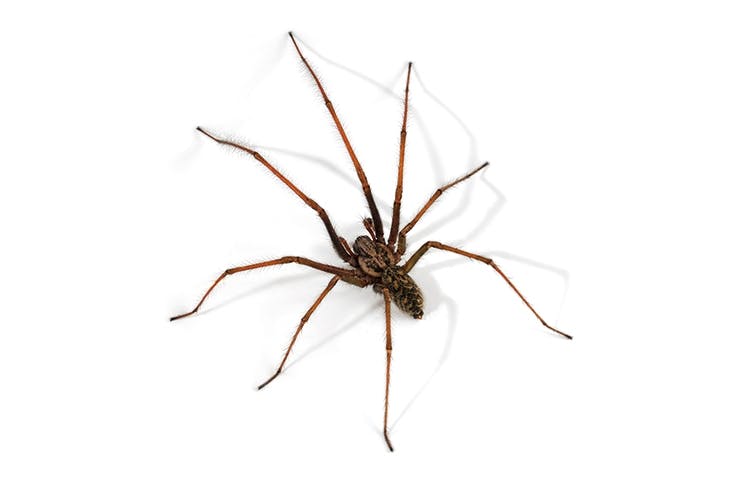Even in my shed at the bottom of the garden I can hear the screams coming from the house. Shrieks of pure terror, often sustained for several seconds, followed by desperate cries for help. No, my family’s not being assailed by a serial killer. Spider season is here and Caroline is an arachnophobe.
One a scale of one to 10, I’d give her about an eight on the irrationality scale. She doesn’t insist that I search every nook and cranny of our bedroom to make sure it’s spider-free before she can go to sleep. But she has surrounded the bed with conkers. She’s a great believer in the spider-repelling properties of horse chestnuts, even though there’s no scientific evidence for it.
When we first got together and I discovered this phobia I made the mistake of asking her what she was scared off. ‘Being bitten of course,’ she said. I assured her that the chances of being bitten by an English house spider are vanishing to zero, but she looked at me as if I was a paid agent of the Spider King. ‘What d’you think that is, then?’ she said, jabbing her finger at an almost invisible red spot on her leg. And that’s not the only reason to fear arachnids. As any fule kno, they can also crawl into your ear or mouth when you’re asleep and lay eggs which then hatch a few days later, producing an eruption of baby spiders.
Paradoxically, she also wildly inflates the size of house spiders, making an unnoticed invasion of a body cavity quite unlikely. I’ve lost count of the number of times I’ve been summoned to the bedroom to deal with one ‘the size of a dinner plate’, only to be confronted with a creature no bigger than my fingernail. I used to think she was deliberately exaggerating to get me to act quickly, but I now realize that her fear is distorting her perception, making spiders appear much bigger than they are.
She did not inherit this phobia from her mother, who is as mystified as I am. Indeed, when Caroline was a little girl Rosemary offered to pay for her to go to London Zoo to be ‘cured’ of her arachnophobia. Apparently, you spend several hours with trained spider wranglers who are so calm and reasonable as deadly creatures crawl all over them that by the end of the session you’re happy to let them place a tarantula in the palm of your hand.
‘Can you imagine that?’ Caroline asked me, shuddering as she recalled the offer. ‘That’s my room 101.’
Sigmund Freud would say my wife’s reaction to Rosemary’s proposal is very revealing. According to his analysis, arachnophobia is rooted in a person’s fear of being smothered by their mother. We hear in childhood that some female spiders eat their mate after sex and, for little girls (or boys) with strong-willed mothers, that can trigger a lifelong terror of spiders.
An alternative explanation — the one favored by Caroline — is that this phobia is encoded in our DNA because our ancestors who survived in the African savannah 100,000 years ago were those who had a fear of spiders. In other words, it’s a perfectly sensible evolutionary adaptation, much like the fear of snakes and disease-carrying vermin. Nothing irrational about it.
In favor of this theory is the fact that arachnophobia isn’t linked to particular cultures or early childhood experiences but is present in all societies dating back to at least 60 BC. Against it is the fact that spiders don’t pose anything like the same threat to human life as snakes or rats, so being terrified of them wouldn’t confer much of an evolutionary advantage.And if the fear is rooted in our genes, why are so many people untroubled by the eight-legged creatures?
My hunch is that it has something to do with an over-developed disgust instinct. Caroline isn’t just frightened of spiders: she also has an intense dislike of flies, maggots and mosquitos. Any household chore that involves a risk of contamination, such as dealing with the recycling or cleaning the toilet, is a ‘blue job’ and she is appalled when I pick up trash on the street. Spiders seem to fall into the same category. They’re ‘dirty’ and the reason she is worried they might bite her is not because it would hurt but because she might become infected in some way. It’s almost as if she’s being confronted with an opponent in a childhood game of ‘It’ who can scuttle at speed towards her and use spider silk to move upwards and downwards.
Caroline pooh-poohed this theory when I shared it with her. ‘My fear of spiders is much less irrational than your fear of thunder,’ she said. ‘Why don’t you write about that?’
This article was originally published in The Spectator’s UK magazine. Subscribe to the World edition here.





















